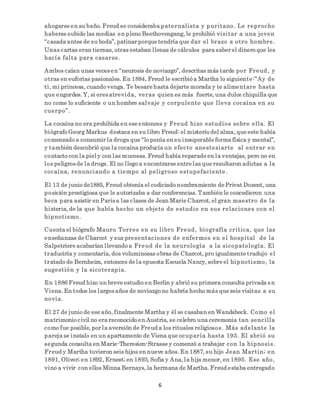Portugal's Migrant Expulsions: From Welcoming Nation To Stricter Policies?

Table of Contents
The Rise of Anti-Immigrant Sentiment in Portugal
Economic anxieties and the narrative of competition for resources:
Increased unemployment in certain sectors, coupled with rising housing costs in popular urban areas, has fueled anxieties among some segments of the Portuguese population. This has created a fertile ground for narratives portraying migrants as competitors for jobs and resources.
- Increased unemployment: While overall unemployment has decreased in Portugal, certain sectors have experienced higher unemployment rates, leading to concerns about job competition.
- Rising housing costs: In popular cities like Lisbon and Porto, the influx of migrants has contributed to increased demand for housing, driving up prices and exacerbating existing affordability challenges.
- Media narratives: Sensationalist media reporting often focuses on negative aspects of migration, neglecting positive contributions and fostering negative stereotypes.
- Anti-immigrant rhetoric: Some political discourse has utilized anti-immigrant sentiment to gain popularity, further exacerbating existing tensions.
Changes in public opinion and political landscape:
Recent polling data reveals a shift in public attitudes towards immigration in Portugal, with a growing segment expressing concerns about its impact. This evolving public opinion has influenced the political landscape, impacting the immigration debate and policy decisions.
- Shifting public opinion: Surveys demonstrate a growing percentage of the Portuguese population expressing concerns about immigration, although levels of outright hostility remain relatively low compared to other European countries.
- Influence of far-right parties: The rise of far-right political parties advocating for stricter immigration controls has put pressure on mainstream parties to adopt more restrictive policies.
- Public discourse: The public discourse surrounding migrant integration has become increasingly polarized, with less emphasis on collaborative solutions and more focus on perceived threats.
Legal Framework Changes Affecting Portugal Migrant Expulsions
Amendments to asylum and deportation laws:
Portugal has introduced several amendments to its asylum and deportation laws, leading to increased scrutiny of asylum applications and a streamlining of deportation procedures.
- Stricter asylum criteria: The application process for asylum has become more rigorous, with stricter criteria for determining eligibility and increased rejection rates.
- Shortened appeal processes: The timeframe for appealing deportation orders has been reduced, limiting opportunities for migrants to challenge decisions.
- Increased administrative detention: There have been reports of an increase in the use of administrative detention for migrants awaiting deportation, raising human rights concerns.
Increased cooperation with other EU nations on repatriation:
Portugal has strengthened its cooperation with other EU member states on the repatriation of migrants, facilitating the return of individuals deemed ineligible to remain in the country.
- EU repatriation agreements: Portugal participates in EU-wide agreements aimed at facilitating the return of irregular migrants to their countries of origin.
- Practical challenges: Implementing these agreements presents logistical and bureaucratic challenges, including identification of individuals, securing travel documents, and ensuring safe and dignified returns.
- Access to legal aid: Migrants facing deportation often face significant obstacles in accessing legal aid and support, hindering their ability to challenge deportation orders effectively.
The Experiences of Migrants Facing Expulsion from Portugal
Challenges in accessing legal representation and support:
Migrants facing expulsion often encounter significant difficulties in accessing legal representation and support services, jeopardizing their ability to navigate the complex legal processes.
- Language barriers: Language barriers create significant obstacles for migrants in understanding legal procedures and communicating with lawyers.
- Financial constraints: The cost of legal representation can be prohibitive for many migrants, leaving them vulnerable to deportation without adequate legal defense.
- Lack of awareness: Many migrants are unaware of their rights and the support services available to them.
The human cost of deportation: personal stories and case studies:
The deportation of migrants has profound personal and social consequences, disrupting lives and families, and causing significant psychological distress.
- Family separation: Deportation often leads to the separation of families, causing immense emotional hardship for both parents and children.
- Loss of livelihood: Deportation results in the loss of jobs, income, and social networks, leading to economic hardship and social exclusion.
- Trauma and mental health: The process of deportation can be highly traumatic, leading to long-term mental health problems for affected individuals.
International Comparisons and Best Practices
Comparing Portugal's approach to other European nations:
Portugal’s approach to migration and migrant expulsions should be viewed within the context of other European nations.
- Comparative analysis: A comparative analysis of immigration policies across various EU states highlights the diversity of approaches and their relative effectiveness.
- Best practices: Successful integration strategies implemented in other European countries can offer valuable lessons for improving Portugal's approach.
- Lessons learned: Examining the successes and failures of different policies can inform the development of more effective and humane migration management strategies.
International human rights standards and their application in Portugal:
Portugal's practices regarding Portugal migrant expulsions must be evaluated against international human rights standards.
- Compliance with international law: An assessment of Portugal’s compliance with international human rights obligations regarding the treatment of migrants and asylum seekers is necessary.
- Due process: The fairness and transparency of expulsion procedures must be carefully examined to ensure adherence to due process rights.
- Non-refoulement principle: Portugal's actions must align with the principle of non-refoulement, prohibiting the return of individuals to places where they face a risk of persecution or torture.
Conclusion
Portugal's approach to migrant expulsions is a multifaceted issue influenced by socio-economic factors, legal changes, and the lived experiences of migrants. While concerns about resource management and integration are legitimate, the increasing strictness of policies raises serious human rights questions. It's crucial to analyze the effectiveness of current measures, consider long-term implications, and strive for a more compassionate and sustainable migration management strategy. Further research and open public dialogue are vital to addressing the challenges surrounding Portugal migrant expulsions and developing policies that balance national interests with the fundamental rights of migrants. We must work towards a more comprehensive understanding of Portugal migrant expulsions to build a fairer and more equitable immigration system.

Featured Posts
-
 Eurovision 2024 Icelands Demand For Israels Expulsion Sparks Debate On War Crimes
May 14, 2025
Eurovision 2024 Icelands Demand For Israels Expulsion Sparks Debate On War Crimes
May 14, 2025 -
 Entendiendo Las Euforias Deleznables Una Perspectiva Profunda
May 14, 2025
Entendiendo Las Euforias Deleznables Una Perspectiva Profunda
May 14, 2025 -
 Tommy Fury And Jake Paul 3 Million Fight Offer And Renewed Feud
May 14, 2025
Tommy Fury And Jake Paul 3 Million Fight Offer And Renewed Feud
May 14, 2025 -
 Eramet And Danantara Collaboration On Downstream Investments
May 14, 2025
Eramet And Danantara Collaboration On Downstream Investments
May 14, 2025 -
 Sinner Through To Italian Open Last 16 Osakas Campaign Ends
May 14, 2025
Sinner Through To Italian Open Last 16 Osakas Campaign Ends
May 14, 2025
